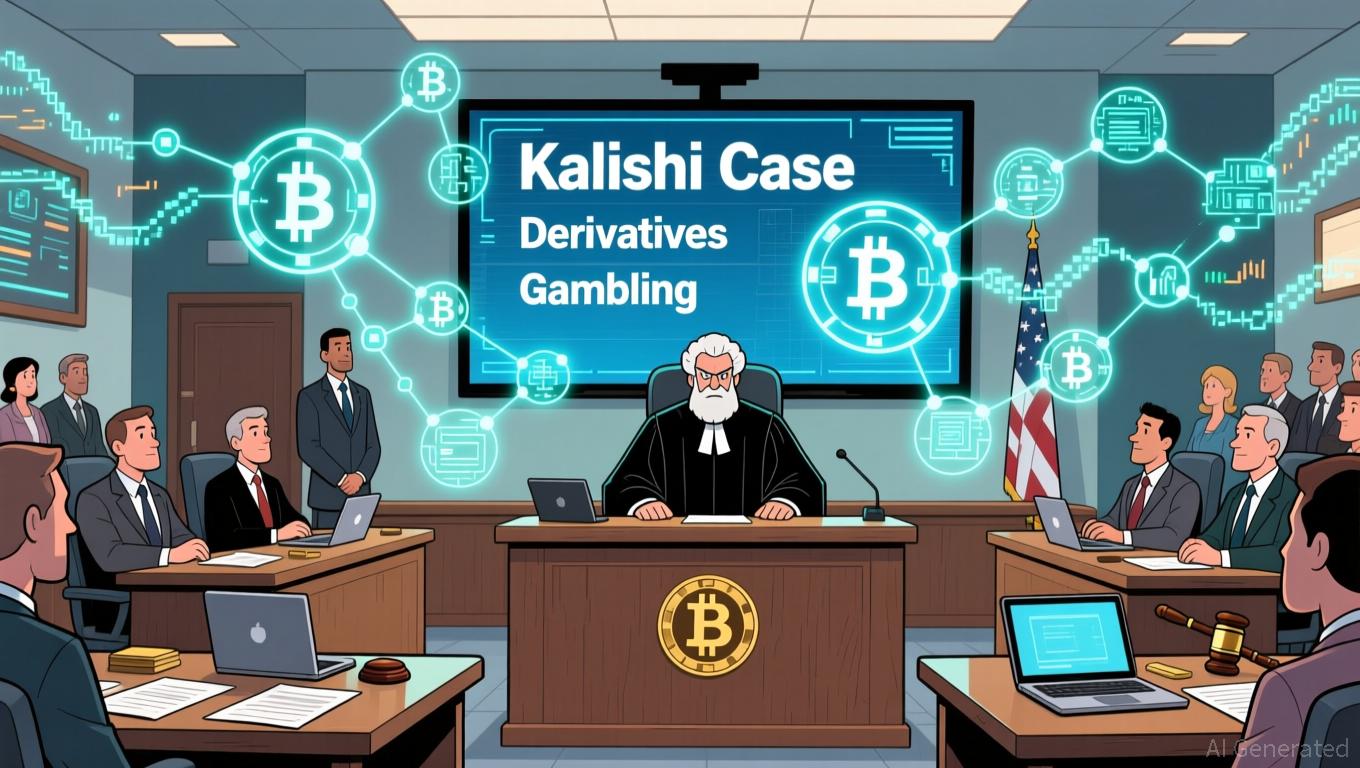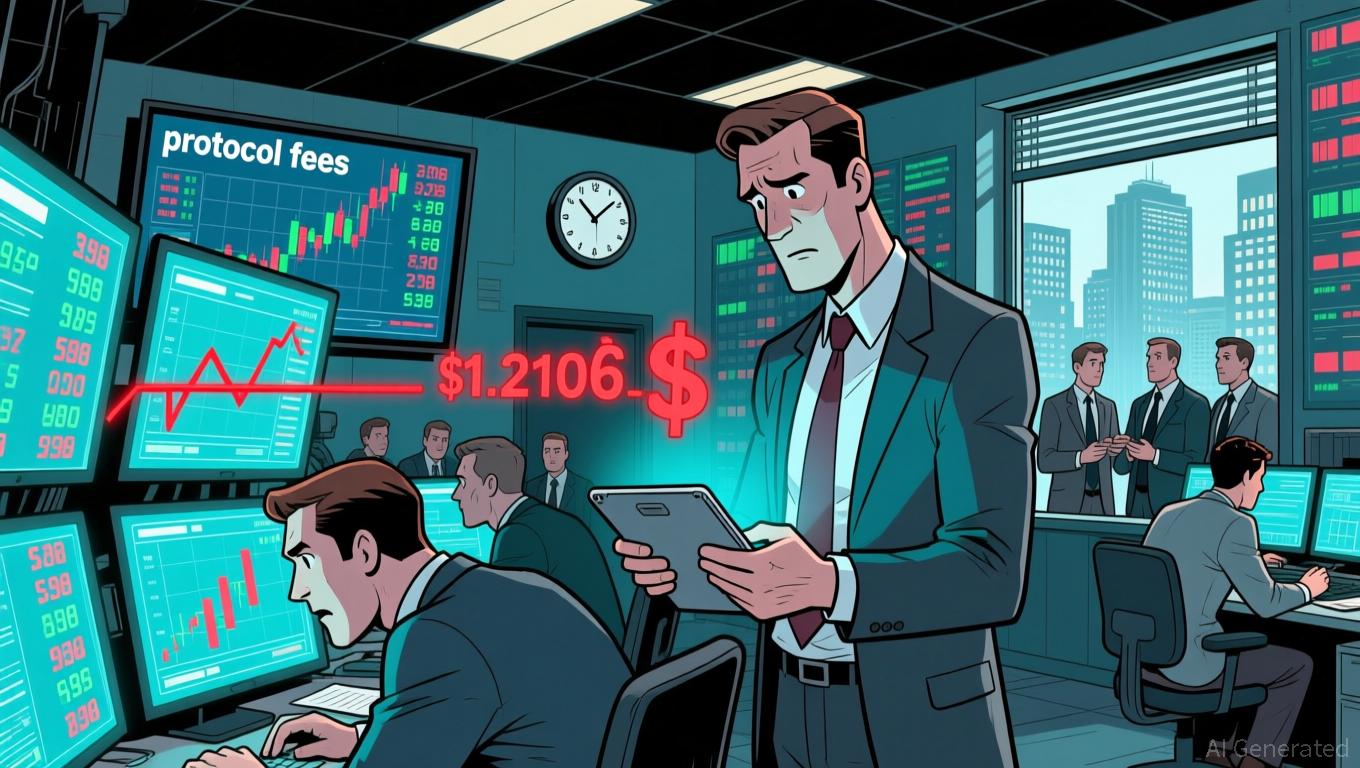Blockchain Betting's Legal Challenge: Is It Considered Gambling or a Derivative?
- NBA star Tristan Thompson advocates blockchain-based sports prediction markets, aligning with DeFi's potential to transform fan engagement. - Kalshi faces legal scrutiny as a federal judge questions whether its event contracts qualify as derivatives under U.S. commodity laws. - Blockchain startups like Ideosphere and Portage Biotech explore prediction markets for scientific funding, leveraging tokenized assets and staking revenues. - Regulatory ambiguity over derivatives vs. gambling risks stifling innov
Tristan Thompson, once an NBA standout and now a blockchain innovator, has become a prominent supporter of sports prediction markets, using his influence to showcase how decentralized finance (DeFi) could transform the sports betting landscape. His recent remarks and financial backing reflect a wider movement within the industry, as firms such as Kalshi and Ideosphere work through regulatory and legal complexities to broaden the reach of prediction markets. Still, the future remains uncertain, especially as courts deliberate on whether these platforms comply with current U.S. commodity trading regulations.
The regulatory environment for sports prediction markets shifted significantly in late November when a federal judge in Nevada expressed doubts about Kalshi's argument that its offerings should be considered derivatives instead of gambling products. In a legal dispute over the company's compliance with the Commodity Exchange Act, Judge David C. Borman questioned if Kalshi's event contracts—which are essentially bets on sports results—could be categorized as swaps or futures. "Your definition seems so expansive that almost anything could be labeled a swap," Borman commented,

The larger economic backdrop also supports the growth of prediction markets. While AI-related stocks have experienced instability amid doubts about their long-term prospects, blockchain-driven platforms are becoming popular alternatives to traditional betting. For instance,
Thompson's support fits within these developments, as he champions blockchain-based solutions that emphasize openness and user autonomy. Nonetheless, the industry's expansion depends on clarifying regulatory uncertainties. The outcome of the Kalshi case, in particular, could establish a benchmark that either validates or restricts the evolution of prediction markets.
Disclaimer: The content of this article solely reflects the author's opinion and does not represent the platform in any capacity. This article is not intended to serve as a reference for making investment decisions.
You may also like
DASH surges 30.39% over the past week amid strategic growth moves and positive analyst revisions
- DoorDash's DASH stock fell 10.59% in 24 hours but surged 30.39% in 7 days, driven by a strategic Old Navy partnership expanding retail delivery services. - Acquisitions of Deliveroo and autonomous delivery partnerships with Coco Robotics, plus $10.72B revenue and 49.2% gross margin, strengthened market leadership. - Analysts raised price targets to $260 with "Outperform" ratings, citing growth potential despite a high 98.1 P/E ratio reflecting market optimism. - Technical analysis shows bullish reversal
Aster News Today: Optimism Faces Prudence: ASTER Approaches $1.21 Following RSI CEO's 16% Stake Sale
- Aster (ASTER) rose 8% toward $1.21 as Binance-backed DEX hit $3T in cumulative trading volume. - RSI CEO sold 16% stake ($11M+), raising doubts despite Q2 revenue growth (19.7%) and EPS beat. - ASTER faces mixed signals: bullish triangle pattern vs. declining fees, 50% open interest drop, and stagnant adoption. - Analysts remain divided: RSI's 22% YTD gain contrasts with ASTER's uncertain breakout potential amid waning trader enthusiasm.

The ChainOpera AI Token Crash: An Urgent Warning for Cryptocurrency Projects Powered by AI
- ChainOpera AI's COAI token collapsed 96% in late 2025, exposing systemic risks in AI-driven DeFi ecosystems. - Centralized governance (10 wallets controlled 87.9% supply) and misaligned incentives exacerbated panic selling during crises. - Technical flaws included untested AI models with 270% increased vulnerabilities and inadequate smart contract security audits. - Regulatory shifts like the GENIUS Act compounded liquidity challenges, highlighting the need for compliance-ready AI crypto projects. - Inve

How large a portion of the AI data center surge will rely on renewable energy sources?